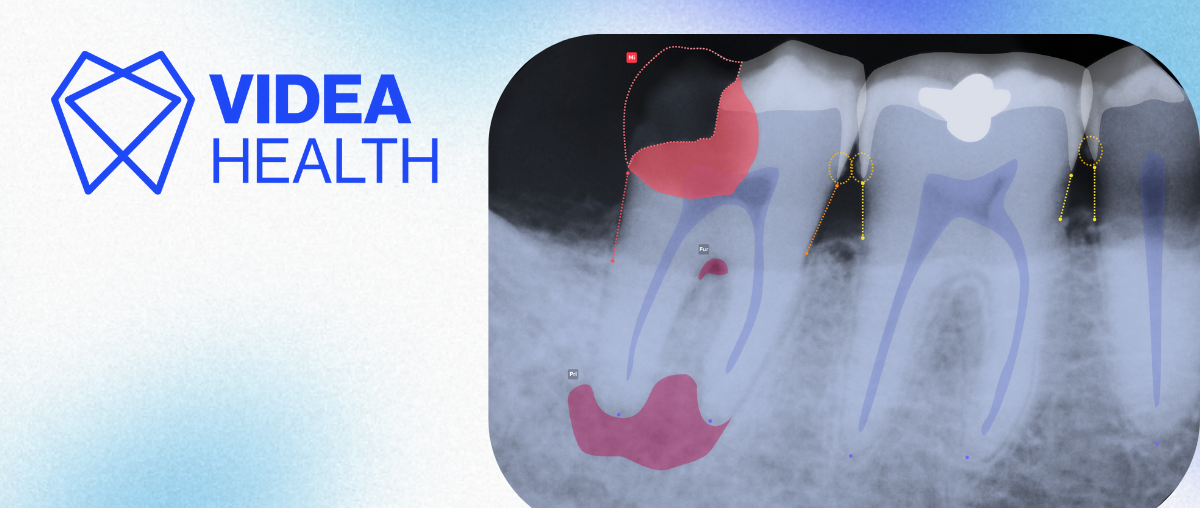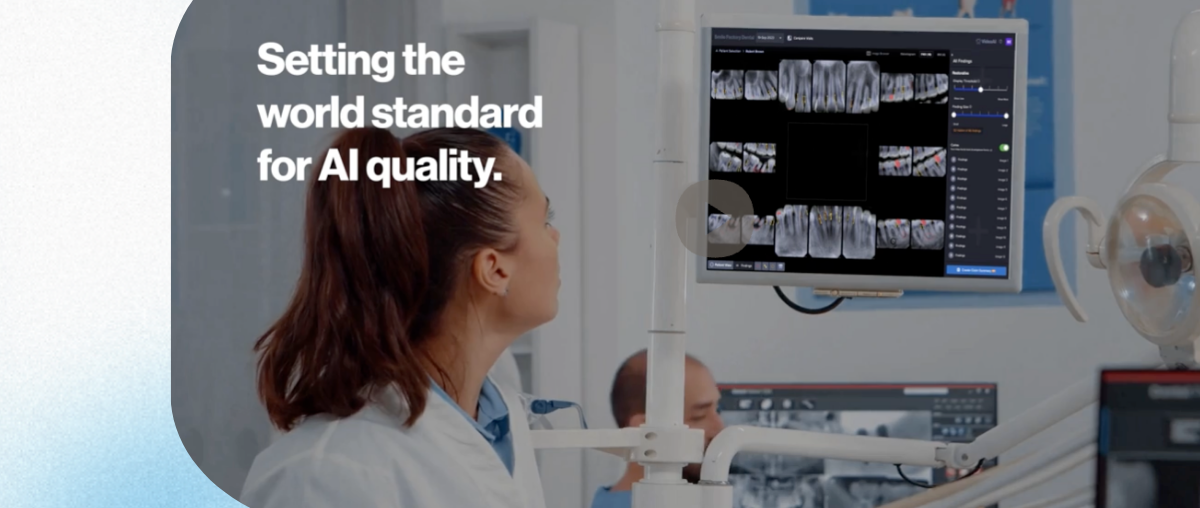
Chances are, even if you haven’t heard much about artificial intelligence (AI), you’ve been benefiting from it on a daily basis. AI—the development of machines and computer systems capable of performing tasks that previously required human intelligence—is the foundation for many recreational tools we’ve been using over the past two decades. For example, Netflix uses AI to recommend the next film or TV series it thinks you’d enjoy watching. Amazon’s Alexa utilizes AI to interact with its users and carry on full conversations. Facebook depends on AI to recommend what it believes to be the most relevant news story, friend’s photo or post you’d like to see next as you scroll.
Within the health care industry, artificial intelligence has perhaps the largest opportunity for potential impact. Accenture recently estimated the total impact of AI in health care to be $150 billion by 2026. It has been used to improve breast cancer detection and even predict the best course of treatment for patients suffering from clinical depression. Trusted medical practitioners already provide patients with invaluable intuition and years of firsthand experience. This, coupled with immense amounts of AI data detailing patient history and patterns, provides powerful results. The potential for human error or doctor bias is minimized, helping doctors more likely land on the most accurate diagnosis in the face of all that data.
In the span of his or her dental career, the average full-time dentist will see 20,000 unique patients along with hundreds of thousands of images. AI algorithms “train” on exponentially more images while also incorporating feedback from a multitude of dentists. VideaHealth’s AI, for example, has been trained on more than 10 million specific images and continues to grow. This allows AI to reduce the subjectivity inherent in the field of dentistry, creating a consistent quality of care for patients.
Assisting diagnosis and treatment planning
The world of dentistry will benefit from the use of artificial intelligence across three broad domains: diagnostics and treatment planning, office management, and dental insurance and documentation.
We are already realizing the benefits of AI within diagnostics and treatment planning. Dental Monitoring is an intelligence-based service that enables patients to scan their teeth through their smartphones, allowing orthodontists to analyze, monitor and check on treatment progress. VideaHealth, along with numerous Heartland Dental-supported dentists, will take this one step further to aid in the diagnosis and prediction of the progression of diseases such as caries or periodontitis.
Historically, the diagnosis and treatment planning of carious lesions has a high variance between dentists, and this subjectivity in diagnosis and variation in treatment philosophies can cause patient mistrust. Diagnostic assistance for clinicians enabled by AI will help to introduce a layer of transparency and understanding between dentists and patients, supporting dentists in their clinical decision-making and helping foster higher levels of patient trust.
Dentists will always maintain control of the final diagnosis and treatment plan. They are the experts who have access to their patients’ entire dental and medical diagnostic information and history, along with a comprehensive understanding of each patient’s needs, wants and desires. AI-guided diagnosis will continually learn from dentists. AI will simply support dentists in the first portion of their clinical assessments, which allows dentists to make highly informed decisions, even within the confines of an often-hectic day of dental practice.
Resolving common insurance inefficiencies
With regard to dental office management, artificial intelligence—whether computer vision for diagnosing diseases in dental imaging or “natural language processing” talk-to-type translations to automate doctors’ notes—will help to improve the way a dental office operates in the future. The resource constraints and social distancing norms created by the COVID-19 pandemic will likely accelerate the adoption of AI in dental practices to manage workloads. In the not-so-distant future, we envision AI supporting dentists with automated charting and input of patient notes using natural language processing.
At the same time, AI has the capability to revolutionize many current inefficiencies in the insurance and claim process. Procedures such as crowns can often require preapproval from insurance companies, which use dental consultants to manually review some claims, resulting in decisions that can take up to several weeks for adjudication. This delay can, in turn, cause patients to have their procedures completed elsewhere or interrupt the treatment altogether.
Many dental procedures also cause patients a high level of uncertainty about cost and out-of-pocket expenses. Ambiguity around specific insurance coverage may impede care that has already been determined necessary by the clinician and patient. AI can support dental offices in their claim submission by verifying the completeness of the submission information to avoid unnecessary back-and-forth between provider and payor.
After a claim is submitted directly or indirectly, via a clearinghouse, it goes into a queue of tens of thousands of daily claims until it is assigned to a dental consultant. The “reviewer” has anywhere from 1 to 10 days, depending on the insurance and plan, to log in, verify procedure coverage, and either approve, adjust or flag it for further questioning. Some of these procedures, in the short run—and perhaps all procedures in the long run—can be automated by AI. This will enable the dentist and team to receive an objective assessment, almost in real time.

A dentist uses VideaHealth’s artificial intelligence software that helps gauge the caries level in carious lesions.
Making the patient experience more seamless
AI is also expected to be a game changer for the overall patient experience, specifically with improved hospitality. AI can predict a patient’s preferred day and time for office visits, desired care preferences and even the preferred type of music to listen to during treatment.
Artificial intelligence algorithms rely on the underlying data received. As a result, there are understandable concerns about patient privacy and bias. However, some argue the potential for greater privacy using AI systems. In an article for Med City News, Matt Fisher writes, “While AI poses a risk to de-identification, from a different perspective it can also create the ability to construct new means of de-identifying data. Just as AI can pull from multiple sources to identify individuals from a smaller set of data, the process could also be used in the inverse to implement new protections that render data even more de-identified than before.”
Fisher adds that another potential enhancement to patient privacy with AI is improved compliance monitoring. Under HIPAA, information systems and data should be regularly monitored, but this is typically a manual process and, as a result, there is always the potential for human error. In addition, a manual system of compliance cannot cover nearly as much ground as AI.
“But could it replace people?”
Even before AI, there have been concerns about efficiency enhancement leading to job loss for medical personnel, primarily on the operational or clerical side. Instead of job loss, these AI tools and capabilities could actually free up office managers, team members and clinical assistants to utilize and develop other skills within their practice, or simply to devote more time and energy to patient care and relationships. Ultimately, the entire point of artificial intelligence is not to replace dental practitioners and their support teams, but to enhance the work they’re already doing by creating a more reliable and consistent patient experience.
Many experiences in our future will include the use of artificial intelligence, but its role in dentistry and the doctor-patient relationship will certainly benefit—sooner rather than later. As a reminder: Although AI can and will assist clinicians with the aforementioned recommendations, dentists must always remain the ultimate authorities and make the final decisions regarding their patients’ diagnoses and treatment plans.

.png)


